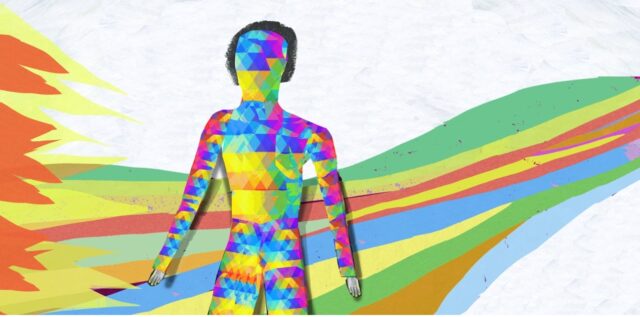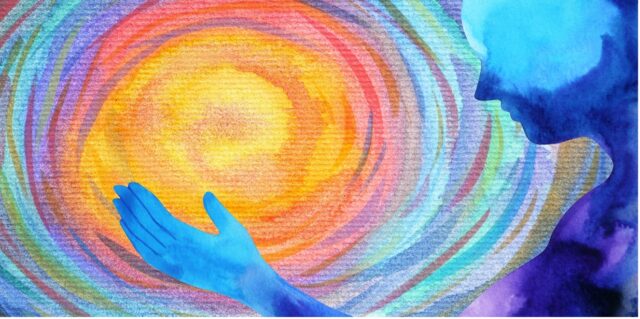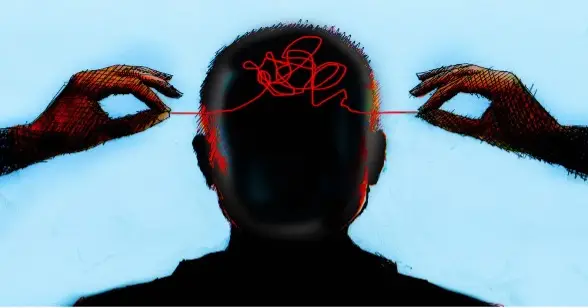5. Implementing MDMA Therapy
It is critical to emphasize that there is still disagreement among scientists regarding the pharmacology of MDMA when talking about its methods of action. The known pharmacology of MDMA, which has been succinctly referred to as “messy” in the past, makes attempts to afterwards tie it to expected psychological consequences – and, furthermore, how these effects might affect MDMA-assisted psychotherapy – considerably more problematic. However, the following is an attempt to reflect on this difficulty.
- MDMA is a phenethylamine with a substituted ring that works by encouraging increased levels of serotonin, dopamine, and noradrenaline. Reduced amygdala fear response decreased despair and anxiety, and increased levels of self-confidence are all effects of increased 5-HT1A and 5-HT1B receptor activity (Sessa, 2018).
- According to Harris et al. (2002), MDMA causes modest changes in perception that help with memory and imagination. It also elevates mood, fosters emotions of connection, compassion, and empathy for oneself and others (Sessa, 2018). Similar to “traditional” psychedelics, MDMA also affects 5-HT2 receptors, which heightens happiness levels further (Sessa, 2018).
- Arousal and awareness levels are raised by elevated dopamine and noradrenaline, which might encourage a patient to participate in therapy and has been found to encourage fear extinction. Additionally, MDMA’s effects at alpha-2 receptors may also lead to a paradoxical relaxation/sedation effect which may be advantageous in the context of trauma-induced hypervigilance. Oxytocin, a hormone linked to early infantile bonding, has been proven to be released more easily by MDMA, which may lead to higher levels of empathy and intimacy (Sessa, 2018).
- But there’s still disagreement on this phenomenon. According to other studies, oxytocin reduces amygdala activity associated with fear, which reduces the stress response and social anxiety (Sessa, 2018).
Because of its well-recognized medical effects, MDMA is sometimes referred to as a “empathogen” or an “entactogen”. Additionally, these modifications in social cognition, interpersonal connection, and communication may affect how psychotherapy treatments for alcohol use disorder and associated psychological disorders turn out when considered as a whole.
6. Can MDMA work for Substance-Use Disorders?

In contrast to the traditional psychedelics (such as LSD and psilocybin), MDMA has never been studied in the context of substance use disorders. Additionally, there are tens of thousands of anecdotal accounts in the popular press of how LSD and magic mushrooms, used recreationally or in underground settings for semi-therapeutic purposes, have assisted drinkers in overcoming their alcohol use problem.
- However, anecdotal accounts claiming that “ecstasy cured my alcoholism” are noticeably rare.
Since the 1950’s, researchers have repeatedly demonstrated how the strength of the induced mystical or spiritual effects of LSD or psilocybin, and similarly with ketamine, are closely linked to the positive outcomes in substance use disorders; the stronger the spiritual experience, the greater the maintained abstinence from substance use.
- However, compared to the 80-90% of mystical-type experiences reported by traditional psychedelic use, the mild subjective spiritual/mystical experience linked with MDMA use only occurs in 10-15% of first-time threshold dose users (Sessa, 2018).
However, it has been demonstrated that MDMA Therapy is a useful method for addressing trauma, which is usually reported as a pre-morbid condition by individuals with alcohol consumption disorder.
- Recent fMRI research has shown that MDMA’s ability to help users withstand their worst memories may have a mechanical action. Additionally, since the 1980s, MDMA has been investigated as a means of treating underlying trauma, and decreases in substance usage have also been seen as a result (Sessa, 2018).
More recently, MDMA-assisted psychotherapy for chronic, treatment-resistant PTSD has shown statistically and clinically significant benefits, with outcomes sustained at 3.5 years follow-up (Sessa, 2018).
The ability of MDMA to heighten sentiments of empathy and compassion for oneself and others may help one become more self-aware and, as a result, lessen the tendency to deny abusing alcohol. As a potential treatment for alcohol use disorder, mindfulness practises, which were originally drawn from Vipassana meditation and emphasis awareness and acceptance of thoughts, feelings, and body sensations, have received more attention in recent years (Sessa, 2018).
- While MDMA-assisted psychotherapy and mindfulness as a clinical tool haven’t been tested together therapeutically, experts in the field have noted similarities between the two philosophies. For example, MDMA’s ability to “make yourself present in the moment,” is a key component of mindfulness.
Given that it has fewer spiritual effects than traditional psychedelics, MDMA is typically easier to tolerate than these substances. It also has less perceptually disruptive effects than LSD and psilocybin. Compliance is important in addiction therapy since not all patients can handle the traditional psychedelic experience.
In conclusion, MDMA may strengthen and intensify psychotherapy procedures used to treat alcohol use disorder. It is well tolerated and may help address symptoms of other disorders that typically coexist with substance use disorders, particularly those symptoms linked to a history of psychological trauma.
7. MDMA Therapy Safety
In the few studies where healthy volunteers who had never used ecstasy before received MDMA clinically in a therapeutic setting, subjects did not express a desire to use it outside of the clinical setting, and in the most recent MDMA-PTSD studies conducted, illicit use of ecstasy after having received it clinically is very infrequently observed.
MDMA therapy has its complications. Some clinical MDMA users report feeling more anxious after having derealization-type experiences.
- Initial neurocognitive side effects can temporarily impair verbal and visual memory, but they usually go away as the drug’s acute subjective psychological side effects wear off (Sessa, 2018).
- Acute MDMA causes an increase in body temperature, heart rate, and blood pressure. Other common symptoms include tightness in the jaw, bruxism, decreased appetite, poor concentration, and unsteadiness (Sessa, 2018). However, all of these characteristics can be easily managed in a professional context where vulnerable individuals can be screened, participants’ vital signs are watched closely throughout the MDMA session, and post-session assistance can be provided through follow-up sessions.
Early in the 1990’s, specific worries regarding possible MDMA neurotoxicity surfaced in the psychopharmacology field.
- While some studies have shown temporary verbal memory deficits, slow processing speeds, and a variety of executive impairments in recreational ecstasy users, including verbal fluency impairments and spatial working memory deficits, other studies have reported a lack of such deficits (Sessa, 2018).
When other recreational drug use was taken into consideration, recent research did not establish any conclusive evidence of long-term neurotoxicity linked to recreational ecstasy use. It also did not demonstrate that any lingering neurocognitive impairments are normalized following cessation of recreational ecstasy use (Selvaraj et al., 2009).
There have been no reports of long-term neurotoxicity or associated cognitive abnormalities when pure MDMA has been administered as part of a scientific investigation in a controlled clinical setting. It is important to stress that MDMA used therapeutically and recreationally are quite distinct substances.
8. Future Implications

We are witnessing an expansion of MDMA’s clinical applications as the Multidisciplinary Association for Psychedelic Studies (MAPS) moves on with Phase 3 studies in the USA for MDMA-Assisted Psychotherapy for treatment-resistant PTSD.
- MDMA Therapy for PTSD is expected to receive an FDA licence by 2021 and an EMA European licence by 2024, according to MAPS (MAPS, 2017). However, beyond just PTSD, psychiatrists are becoming more aware of the impact that early psychological trauma plays in a variety of mental diseases.
In the UK, MDMA has a lengthy history of being associated with ecstasy for recreational purposes, which has given it a bad reputation. Moreover, this narrative needs to be addressed, in part because the substance has been shown to be safe and effective in a clinical environment and in part because politics and misinformed public opinion should not be allowed to control how medical research is conducted (Sessa, 2018).
There is still considerable work to be done to persuade a skeptical medical community and wary governments that a substance used recreationally by 750,000 individuals every weekend in the UK may also have therapeutic benefits for those with substance use problems when used in clinical settings.
- Research is still hindered by regulatory clearances related to MDMA’s position as a schedule 1 medication because they add extra costs that are beyond the means of many academic institutions’ budgets and impede advancement (Sessa, 2018).
Psychedelic culture is currently experiencing a noticeable rebirth in both the medical community and the media. In light of this, treatment outcomes for alcohol use disorder continue to be a burden on psychiatry and society, and they haven’t improved much over the past 100 years. Can we afford to ignore novel possibilities for treating our patients with alcohol use disorder in this situation, given the clinical burden, the lack of treatment efficacy, and their ongoing distress?
Let us know what you think in the comment section below!





